Nuts and seeds are packed with nutrients and have various health benefits. Today we compare the benefits and uses of 3 of our favorite seeds: Hemp vs Chia vs Flax.
Incorporating these three nutritious seeds into your diet means fueling your body with some of the earth's most nourishing nutrients. From healthy fats to essential amino acids, antioxidants, and more, these superfoods will not disappoint! As an added bonus, there are a variety of uses for each of these seeds that make it easy to reap the incredible benefits they have to offer.
Super Seeds
"Super seeds" are highly nutritious edible seeds. They are a great addition to a healthy lifestyle for several reasons. These types of seeds are packed with vitamins, minerals, and antioxidants, making them a nutrient-dense food.
Many seeds like sunflower seeds and sesame seeds are also high in fiber, which helps improve digestion, promote feelings of fullness, and support a healthy gut microbiome. Additionally, some super seeds, such as chia and flax seeds, contain soluble fiber that can help lower LDL or "bad" cholesterol levels in the blood.
The high antioxidant content of super seeds may also help protect against chronic diseases such as heart disease, cancer, and diabetes. Super seeds' versatility means they can be easily incorporated into meals, snacks, and smoothies. Let's delve into the differences and similarities between hemp, chia, and flax seeds. (See also Black seed oil benefits).
Similarities and Differences
As mentioned before, hemp, chia, and flax seeds are all considered "super seeds" due to their high nutritional value. They are high-vibrational foods because they heal and benefit the body in many ways. These seeds have some similarities in terms of their nutrient content but also have some differences.
One similarity is that all three seeds are a good source of plant-based protein, fiber, and healthy fats. They are often used as alternative protein sources for those who wish to avoid animal products.
They are also rich in vitamins and minerals, including magnesium, phosphorus, and zinc.
One of the differences between these seeds is their omega-3 and omega-6 fatty acid content.
Flax seeds are particularly high in alpha-linolenic acid (ALA), which is an omega-3 fatty acid that may have anti-inflammatory properties. This may make these seeds a great choice for those who suffer from chronic inflammatory conditions like rheumatoid arthritis.
Chia seeds are also high in ALA and have a good balance of omega-3 and omega-6 fatty acids.
Hemp seeds, on the other hand, have a higher ratio of the essential fatty acids omega-6 to omega-3.
Culinary Differences
Another difference is their culinary uses. Flax seeds have a slightly nutty flavor and are used in baking, while chia seeds have a mild, nutty taste and can be added to smoothies, oatmeal, or yogurt. Hemp seeds have a slightly nutty and earthy flavor and can be added to salads or used as a topping for dishes.
Finally, there are some differences in terms of the way they are grown and harvested. Flax and chia seeds are typically grown and harvested in North and South America, while hemp seeds are more commonly grown in Asia and Europe.
Overall, while these seeds have some differences in their nutrient content and culinary uses, they have incredible nutritional benefits and can be a valuable addition to a healthy diet. Let's delve in to learn a little more about each of these potent plant foods.
Hemp Seeds
Hemp seeds are the seeds of the hemp plant, Cannabis sativa. They are also referred to as hemp hearts. Although they come from the cannabis plant, they do not contain any trace of THC. What they do have is a whole host of extraordinary health benefits.
Hemp seeds have a mild, nutty flavor and a creamy texture. They are a good source of plant-based protein, containing all nine essential amino acids. This makes hemp seeds considered a complete protein source.
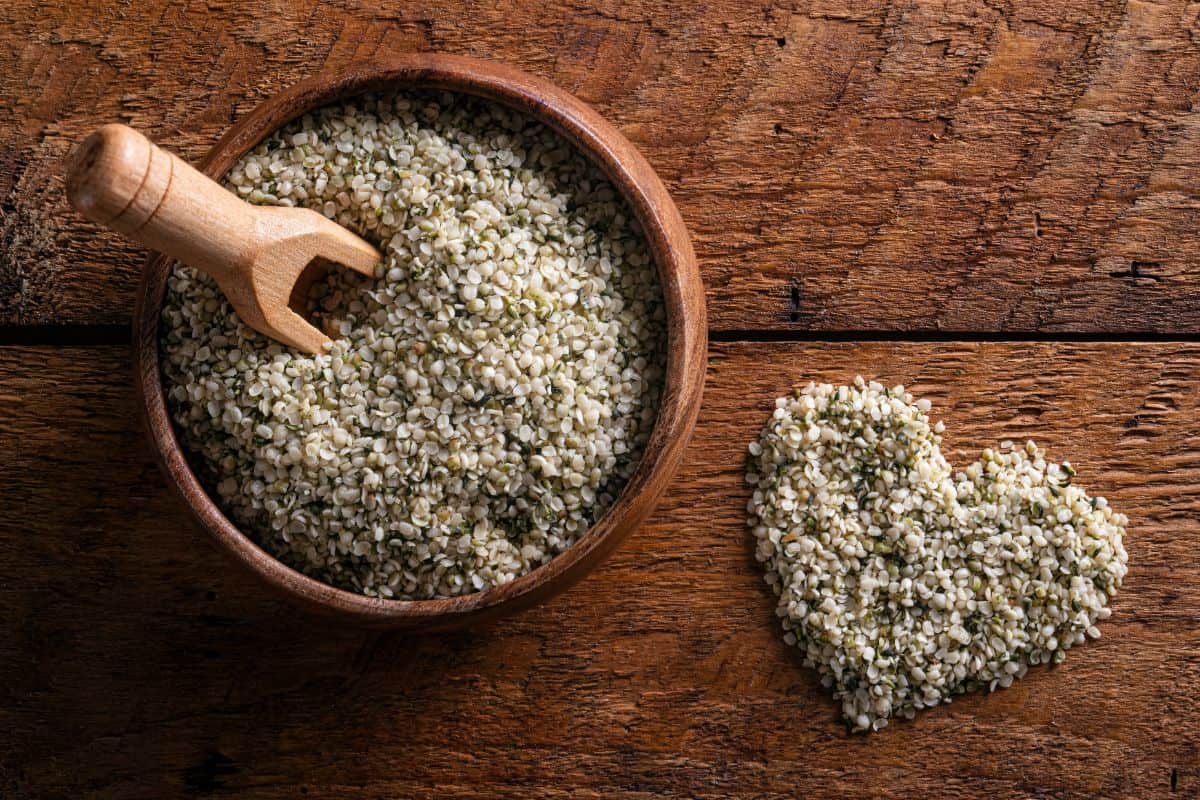
Hemp Benefits
Hemp seeds are also high in fiber, vitamins, and minerals, including vitamin E, magnesium, and zinc.
Vitamin E is a potent antioxidant and fat-soluble vitamin that can help protect cells from damage caused by free radicals.
Magnesium is important for bone health and is involved in many bodily functions, including muscle and nerve function, managing blood sugar levels, and reducing high blood pressure.
Zinc is essential for immune function, wound healing, and healthy growth and development.
They are also a rich source of essential fatty acids, including alpha linolenic acid (ALA), an omega-3 fatty acid that has anti-inflammatory and antioxidant properties. These fatty acids are important for maintaining brain health, reducing inflammation, and promoting cardiovascular health.
They can be consumed raw or roasted, and are often used as a topping for salads, yogurt, cereal, or smoothie bowls.
Hemp seeds are also used to make hemp milk, which is a popular plant-based milk alternative. These super seeds can also be cold pressed and made into hemp seed oil.
Additionally, they are used in baking as a substitute for nuts or seeds or as an added nutritional boost. Of course, the amazing health benefits of hemp seeds are why they are considered a potent superfood.
 Hemp Seeds, 16oz; 10g Plant...Shop on Amazon
Hemp Seeds, 16oz; 10g Plant...Shop on Amazon
 GERBS Roasted Unsalted Whol...Shop on Amazon
GERBS Roasted Unsalted Whol...Shop on Amazon
 FGO Organic Hemp Hearts, Sh...Shop on Amazon
FGO Organic Hemp Hearts, Sh...Shop on Amazon
Chia Seeds
Chia seeds are small, black or white seeds that come from the Salvia hispanica plant, which is a member of the mint family. These tiny seeds are native to Mexico and were a staple food in ancient Aztec and Mayan diets.
Chia seeds are rich in nutrients and offer several extraordinary health benefits.

Chia Benefits
One of the key health properties of chia seeds is their high fiber content. They are an excellent source of soluble and insoluble fiber, which can help promote digestion, regulate blood sugar levels, and support a healthy digestive tract.
Additionally, chia seeds are a good source of protein, containing all nine essential amino acids. Similar to hemp seeds, this makes it a great option for those looking to avoid animal protein.
Chia seeds are also high in omega-3 fatty acids, including alpha-linolenic acid (ALA), which helps reduce inflammation and lower the risk of heart disease.
Additionally, chia seeds are a rich source of antioxidants, which can help protect against oxidative stress from free radicals.
Moreover, chia seeds are a good source of several vitamins and minerals, including calcium, magnesium, and phosphorus.
Calcium is important for maintaining strong bones. Magnesium is involved in many bodily functions. These functions include muscle and nerve function, blood sugar regulation, and blood pressure control. Phosphorus is important for bone health, kidney function, and energy production.
Research suggests that the health benefits of chia seeds may reduce inflammation, improve blood sugar control, and reduce the risk of chronic diseases such as heart disease and cancer.
Chia Uses
Chia seeds can be added to smoothies, oatmeal, or yogurt, or used as a topping for salads or baked goods.
They are best consumed hydrated or soaked. Chia can hold up to 12 times their weight in water. They can be used ground up or hydrated.
These unique seeds can even be used as an egg whites replacement in vegan dishes! This seed is truly one of a kind. You may find popular chia drinks or pouches in the store. However, you may find how incredibly simple it is to make it on your own! Check out this helpful article on Chai vs Chia.
 Pure Living - Organic Sprou...Shop on Amazon
Pure Living - Organic Sprou...Shop on Amazon
 Navitas Organics Chia Seed ...Shop on Amazon
Navitas Organics Chia Seed ...Shop on Amazon
 Viva Naturals Organic Chia ...Shop on Amazon
Viva Naturals Organic Chia ...Shop on Amazon
Flax Seeds
Flax seeds are small, brown, or golden seeds that come from the flax plant. This plant is a member of the Linaceae family. Native to the Middle East, they have been used for their medicinal and nutritional properties for thousands of years.
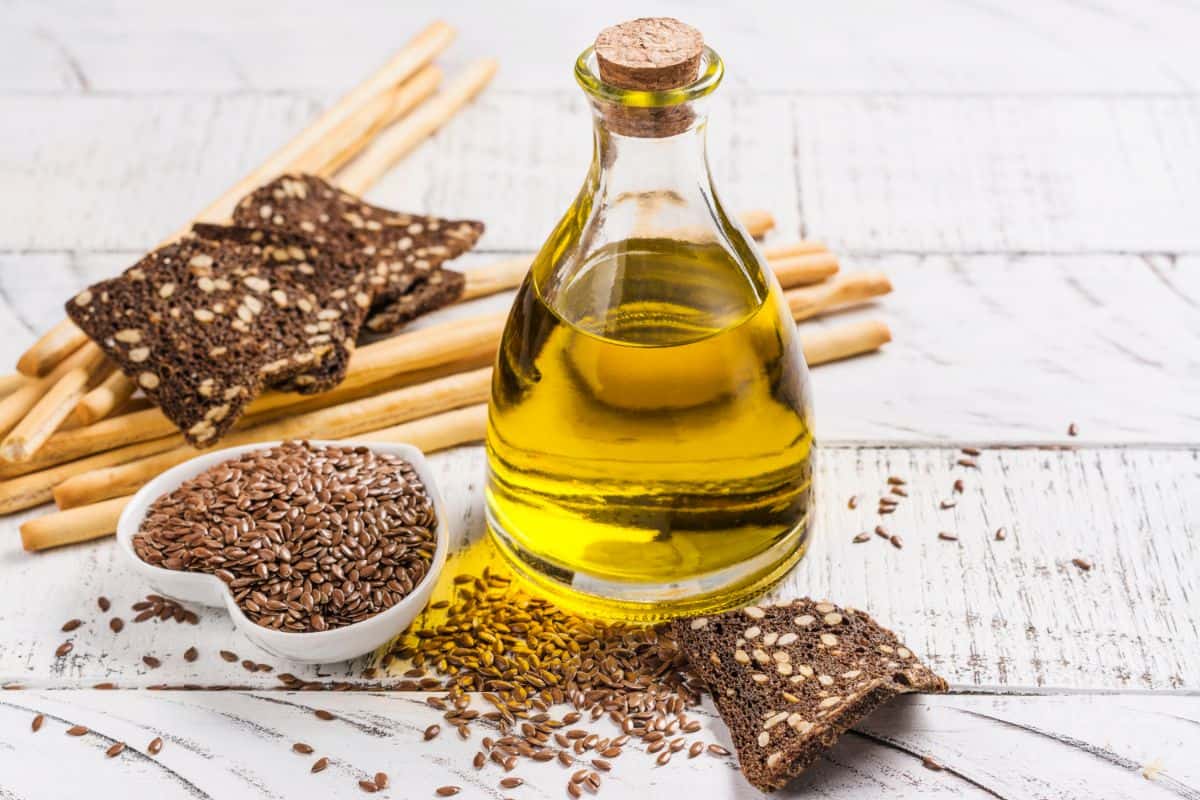
Flax Benefits
Like hemp and chia, one of the key health benefits of flax seeds is their high content of omega-3 fatty acid ALA which helps reduce inflammation and benefits heart health. As mentioned above, flax is the highest of the three seeds in ALA.
Flax seeds are also a rich source of fiber, both soluble and insoluble, which can help promote digestive health and weight loss and regulate blood sugar levels.
Just like hemp and chia, flax seeds have high protein content, containing all nine essential amino acids.
Moreover, flax seeds are a good source of several vitamins and minerals, including thiamin, magnesium, and phosphorus.
These nutrients help nerve and muscle function, lower blood pressure, and build strong teeth and bones.
Research suggests that consuming flax seeds may reduce inflammation, improve blood sugar levels, and reduce the risk of chronic diseases such as heart disease and cancer.
Flax Seeds' Hormone Balancing
Additionally, Flax seeds are also a good source of lignans, which are compounds that may have anti-cancer properties and may help regulate hormone levels in the body. The lignins in flax seeds bind to estrogen in the digestive tract, helping to remove the excess estrogen from the body. The binding action prevents the estrogen from being reabsorbed back into the bloodstream. As a result, it helps to lower the overall estrogen in the body for those who are estrogen dominant.
Flax Uses
Ground flax seeds can be added to smoothies, oatmeal, or yogurt, or used as an egg substitute in baking. Whole flax seeds can be sprinkled on salad, oatmeal, and yogurt, or used in granola bars or baked goods.
 Spectrum Essentials Organic...Shop on Amazon
Spectrum Essentials Organic...Shop on Amazon
 Viva Naturals Organic Groun...Shop on Amazon
Viva Naturals Organic Groun...Shop on Amazon
 Sprout Revolution Nutraspro...Shop on Amazon
Sprout Revolution Nutraspro...Shop on Amazon
Nutrition Facts Chart
Comparison table for one tablespoon serving of hemp vs chia vs flax seeds in nutrition values.
| Nutrient | Hemp Seeds (per 1 tbsp) | Chia Seeds (per 1 tbsp) | Flax Seeds (per 1 tbsp) |
|---|---|---|---|
| Calories | 57 | 69 | 37 |
| Protein | 3g | 2g | 2g |
| Fat | 4g | 5g | 3g |
| Carbohydrates | 0.8g | 4g | 2g |
| Fiber | 0.6g | 3g | 2g |
| Omega-3 | 1.2g | 2.5g | 2.4g |
| Omega-6 | 2.8g | 0.6g | 0.6g |
| Magnesium | 45mg | 24mg | 27mg |
| Calcium | 20mg | 75mg | 26mg |
| Iron | 0.8mg | 0.6mg | 0.4mg |
| Zinc | 0.5mg | 0.4mg | 0.4mg |
| Vitamin E | 1.6mg | 0.1mg | 0.1mg |
| Thiamin (B1) | 0.1mg | 0.04mg | 0.05mg |
| Riboflavin (B2) | 0.02mg | 0.01mg | 0.01mg |
| Niacin (B3) | 0.3mg | 0.4mg | 0.15mg |
| Vitamin B6 | 0.04mg | 0.02mg | 0.05mg |
| Folate (B9) | 9mcg | 5mcg | 6mcg |
Soaking Nuts and Seeds
There are many other seeds and nuts that are highly nutritious and beneficial. Many of them make the best plant-based milk, granola, cereal, trail mixes, and more. Flax and chia can even be used as egg replacements!
While these foods are highly nutritious, it is important to note that some may experience allergies or intolerances to nuts are seeds. If you have a nut allergy, discuss it with your doctor before trying new foods.
Often, digestive disruptions that some experience with these foods can be remedied by soaking or sprouting the whole form nut or seed. The sprouting process helps to remove lectins that are there to protect themselves during growth.
When left on, the protective layer acts as an anti-nutrient and can block the body's ability to absorb nutrients. Some companies will sell seeds or nuts pre-soaked or sprouted.
Otherwise, you can soak and sprout at home! You may need a dehydrator afterward if you plan to use the nuts/seeds in a trail mix or as a snack. Otherwise, it can go straight into the recipe after soaking and rinsing!
Have you tried hemp, chia, or flax seeds? How do you prefer to use them? Let us know in the comments below!
Be well,
Natalie


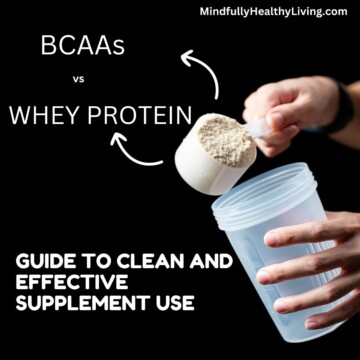
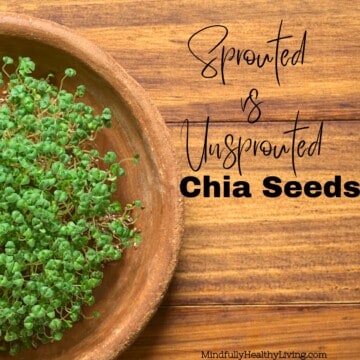
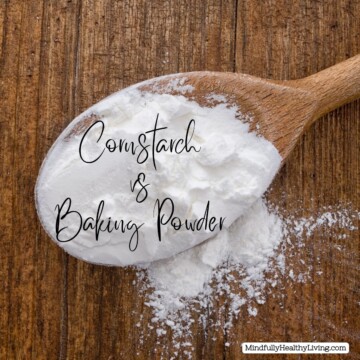
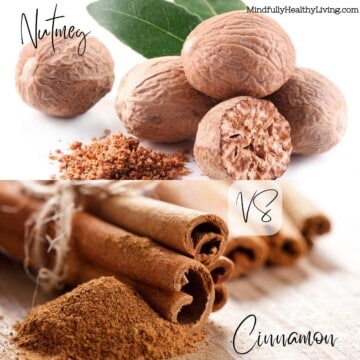
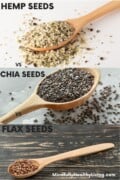
Lisa says
Great post on these super seeds! I put all 3 into my overnight oats breakfast to really pack in lots of nutrients!
Natalie Perry says
That is an excellent way to get the best of the nutrients and health benefits of seeds. Thank you for sharing!